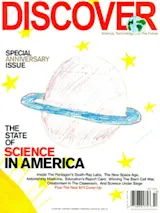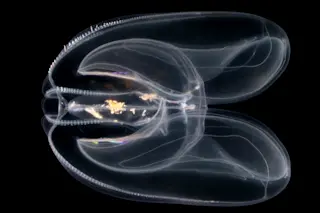Father Michael K. Holleran wrote three pieces for discovermagazine.com in the fall of 2006.
If the theory of evolution only appeared formally and scientifically with Darwin in the 19th century, and famously continues to evolve with burgeoning discoveries and nuances in our own time (the New York Times featured an entire section dedicated to the pullulating perspectives of evolutionary theory on June 28, 2007), perhaps religion can be forgiven a certain tardiness in catching up to the swiftly accumulating evidence. To be sure, St. Augustine already had a seminal theory of seminal causes within the potency of matter in the early fifth century. Also, Pope Pius XII already stamped his basic approval on the theory in his encyclical Humani Generis in 1951.
Nonetheless, events like the famous Scopes trial in Tennessee in 1925 did not put an end to the furor in evangelical religious circles, which continues unabated and debated ...














